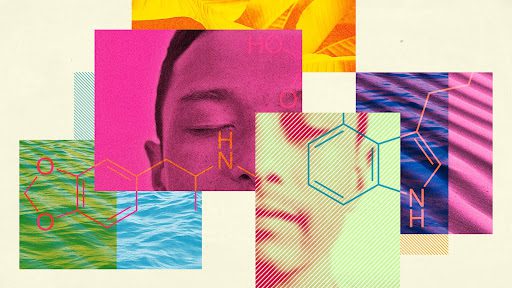Psilocybin therapy, a groundbreaking treatment emerging within the realm of psychedelic medicine, is gaining traction for its potential to address mental health conditions such as depression, anxiety, PTSD, and addiction. However, like any therapeutic intervention, it carries inherent medical risks that must be carefully managed to ensure patient safety and therapeutic efficacy. This article explores the critical aspects of managing medical risk in psilocybin therapy, offering a detailed understanding of how healthcare professionals can navigate this complex and promising field.
What is Psilocybin Therapy?
Psilocybin is a naturally occurring psychedelic compound found in certain species of mushrooms. When ingested, it interacts with serotonin receptors in the brain, inducing altered states of consciousness, perceptual changes, and, in therapeutic settings, potential psychological healing. Over recent years, psilocybin has transitioned from recreational use to being a subject of clinical research, particularly under the umbrella of psychedelic medicine.
Psilocybin therapy typically involves carefully controlled doses administered in a clinical setting, combined with psychological support during and after the experience. This structured approach helps patients explore and resolve underlying psychological issues.
Why Managing Medical Risk in Psilocybin Therapy is Crucial
While psilocybin shows promise, it is not without risks. These include psychological distress, physiological side effects, and the potential exacerbation of pre-existing medical conditions. Proper management of these risks is essential to maximize benefits and minimize harm.
Key Risks Associated with Psilocybin Therapy
- Psychological Risks: Anxiety, panic, paranoia, and psychosis can occur during or after a session, especially in individuals with a predisposition to mental illness.
- Physiological Risks: Elevated heart rate, blood pressure, nausea, and dizziness are common physical reactions.
- Drug Interactions: Psilocybin may interact adversely with certain medications, such as antidepressants or antipsychotics.
- Long-Term Effects: Although rare, some users report lasting psychological disturbances or flashbacks.
Managing Medical Risk in Psilocybin Therapy: Best Practices
1. Comprehensive Patient Screening and Assessment
A thorough pre-treatment evaluation is the cornerstone of managing medical risk. This includes:
- Medical History Review: Screening for cardiovascular disease, epilepsy, or any other conditions that may be aggravated by psilocybin.
- Psychiatric Evaluation: Identifying risk factors such as personal or family history of psychotic disorders, bipolar disorder, or severe anxiety.
- Medication Review: Assessing current medications to avoid adverse drug interactions.
- Informed Consent: Educating patients about potential risks, benefits, and alternatives to ensure they make an informed decision.
2. Controlled Dosage and Environment
- Dose Regulation: Psilocybin dosage must be carefully calibrated based on clinical guidelines and individual patient characteristics.
- Safe Setting: The therapeutic environment should be calm, supportive, and free from distractions, typically under the supervision of trained therapists.
- Monitoring: Continuous physiological monitoring (heart rate, blood pressure) during sessions helps detect early signs of distress.
3. Psychological Support Before, During, and After Therapy
- Preparation Sessions: Educating patients on what to expect reduces fear and anxiety.
- Guided Experience: Therapists provide reassurance and help patients navigate challenging moments.
- Integration Therapy: Post-session counseling assists patients in processing insights and integrating experiences into daily life, reducing the risk of adverse psychological effects.
4. Emergency Protocols
Clinics offering psilocybin therapy must have clear protocols for handling medical emergencies such as acute psychosis or cardiovascular events, including access to medications and referral systems for specialized care.
The Role of Psychedelic Medicine in Shaping Risk Management
The field of psychedelic medicine is rapidly evolving, with ongoing research refining best practices for risk management. Regulatory agencies, medical institutions, and advocacy groups are collaborating to develop standardized protocols and training programs that ensure psilocybin therapy is both safe and effective.
Advances in Psychedelic Medicine Impacting Risk Management
- Personalized Medicine: Using biomarkers and genetic information to tailor therapy and minimize risks.
- Technological Aids: Wearable devices to continuously monitor vital signs during sessions.
- Improved Therapeutic Techniques: Enhanced psychological support methods to reduce distress and improve integration.
Ethical Considerations in Managing Medical Risk
Ethical responsibility is paramount when introducing a potent substance like psilocybin into therapy. Providers must balance the promise of healing against the potential for harm, ensuring that:
- Patient autonomy is respected through transparent communication.
- Vulnerable populations are protected.
- Therapists receive rigorous training and supervision.
Challenges in Managing Medical Risk in Psilocybin Therapy
- Limited Long-Term Data: The novelty of psilocybin therapy means less is known about long-term safety.
- Variable Patient Responses: Individual differences can lead to unpredictable reactions.
- Regulatory Barriers: Legal restrictions can limit access to training and standardization of care.
Conclusion
As psilocybin therapy gains momentum within psychedelic medicine, managing medical risk remains a foundational aspect of its responsible application. Through rigorous patient screening, controlled dosing, supportive environments, and ongoing research, clinicians can harness the transformative potential of psilocybin while safeguarding patient well-being. Continued collaboration across medical, ethical, and regulatory spheres will be vital to advancing safe and effective psilocybin therapy in the years ahead.



































